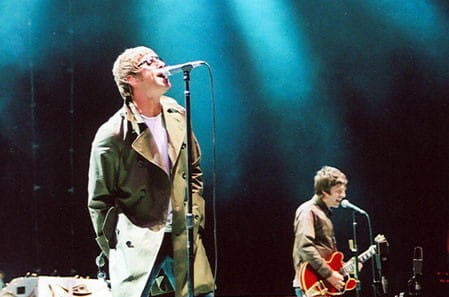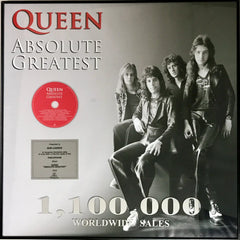![]() Band break ups and make ups have always been with us. Some are heartbreaking, some are entertaining, but all affect their respective fans. Musical groups evolve and experience periods of disbandment and reunion, a reflection of both personal dynamics and professional evolution within the industry. These reunions can be driven by nostalgia, financial opportunities, or a rekindling of creative chemistry.
Band break ups and make ups have always been with us. Some are heartbreaking, some are entertaining, but all affect their respective fans. Musical groups evolve and experience periods of disbandment and reunion, a reflection of both personal dynamics and professional evolution within the industry. These reunions can be driven by nostalgia, financial opportunities, or a rekindling of creative chemistry.
On the heels of this week’s news that Noel and Liam Gallagher have finally, after 15 years, decided to put Oasis back together and play some concerts, here’s a look at ten notable groups that split up and reformed years later.
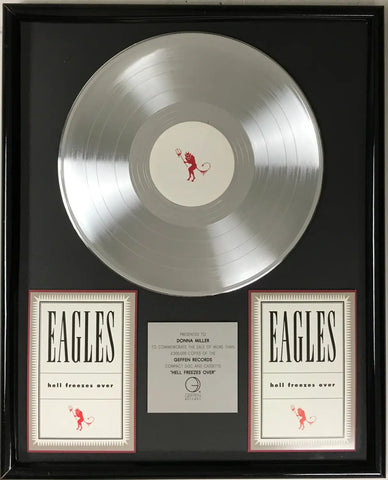
Eagles
What better way to start our list than highlighting the group that famously split with a member responding with “when hell freezes over” when asked if the band would ever get back together?
Formed in 1971, Eagles achieved massive success with hits like "Take It Easy", "Hotel California" and “Life In The Fast Lane”. They broke up in 1980 amid internal conflicts and exhaustion from constant touring. During their split, members pursued solo careers, with varying degrees of success. In 1994, the Eagles reunited for the aptly named Hell Freezes Over tour, a title which by design poked fun at Don Henley's earlier pronouncement. The reunion was highly successful, leading to new albums and tours. Despite various lineup changes over the years, in part due to the passing of Glenn Frey in 2016, Eagles continue to tour and perform, maintaining their legendary status in rock music.

ABBA
Swedish pop sensation ABBA was one of the most successful acts of the 1970s. Known for their infectious melodies and polished performances, the group disbanded in 1982 after a decade of global dominance. The split was largely due to personal issues and a desire to pursue solo careers. Despite their separation, ABBA's music remained popular, driven by nostalgic fans and the success of musical adaptations like Mamma Mia!
The long-awaited reunion finally came in 2021 with the release of Voyage, their first studio album in 40 years. This album marked a significant moment in music history, not only for the band's devoted fan base but also as a testament to their enduring appeal. The announcement of a virtual tour featuring digital avatars of the band members was another innovative step in their comeback, blending technology with their classic sound.
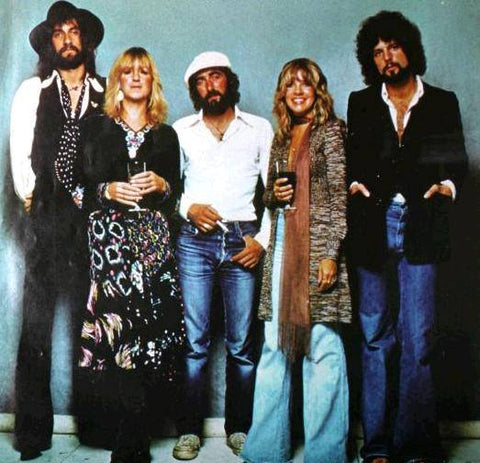
Fleetwood Mac
Fleetwood Mac’s history is a tapestry of shifting lineups (and romantic relationships) and changing musical directions. Formed in 1967 with members including Peter Green, by the mid-1970s the band’s most famous lineup emerged, consisting of Lindsey Buckingham, Stevie Nicks, Christine McVie, John McVie, and Mick Fleetwood. Their 1977 album Rumours became one of the best-selling albums of all time, despite internal strife that fueled the album’s creation.
The band initially split in 1995, partly due to exhaustion and personal conflicts. They reunited in 1997, embarking on the The Dance tour, which was both a commercial success and a critical triumph. This reunion proved that their chemistry was still potent, leading to further tours and occasional recordings. Fleetwood Mac’s ability to reunite and continue performing, despite numerous changes and personal challenges, underscores their lasting impact and the strength of their music.
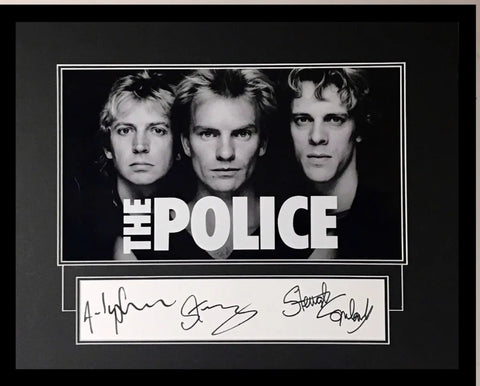
The Police
Sting, Andy Summers, and Stewart Copeland formed The Police in 1977 and quickly become a major force in rock during from then through the early 1980s. Their breakup in 1986 was partly due to Sting's desire to pursue a solo career, which was met with significant success. Despite this, The Police’s music continued to resonate with audiences.
Reunion rumors persisted for years, but it wasn’t until 2007 that the trio officially reformed for a world tour, marking their first concert outings in over two decades. The tour was highly successful, both critically and commercially, reaffirming their place in rock history. The Police's ability to reunite after such a long hiatus and deliver a compelling performance highlighted the timeless nature of their music and their enduring fan base.
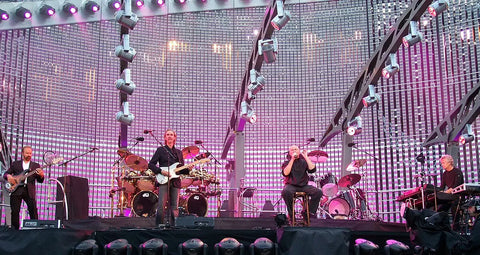
Genesis
Genesis began their career in the late 1960s as a progressive rock band with Peter Gabriel as the lead vocalist. After Gabriel’s departure in 1975, Phil Collins took over as the frontman, leading to a successful shift towards a more pop-oriented sound (which, ironically, Gabriel would also toy with successfully in the 80s). The band went on hiatus in 1998 after the release of Calling All Stations.
The reformation of Genesis began in 2007 with a successful tour that brought together Collins, Mike Rutherford, and Tony Banks. In 2021, they reunited once again for The Last Domino? tour, their first major tour in 14 years. The band's ability to come together and revisit their classic hits, along with their later material, demonstrated their musical legacy and the ongoing appeal of their work.
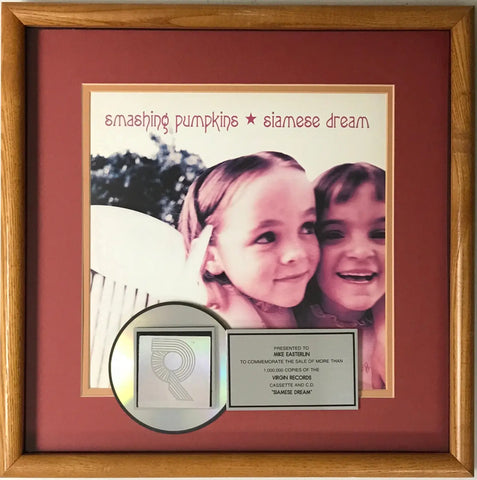
The Smashing Pumpkins
Formed in 1988, The Smashing Pumpkins quickly became a major player in the alternative rock scene with albums like Siamese Dream and Mellon Collie and the Infinite Sadness. The band initially disbanded in 2000 following a period of internal strife and declining popularity.
Billy Corgan, the band's leader, pursued various projects, but in 2006, the original lineup reunited and began recording and touring again. Despite various lineup changes over the years, The Smashing Pumpkins have continued to reform and release new music. Their 2018 album, Shiny and Oh So Bright, Vol. 1 / LP: No Past. No Future. No Sun. was a notable release, reflecting their ongoing evolution and the enduring nature of their influence on alternative rock.
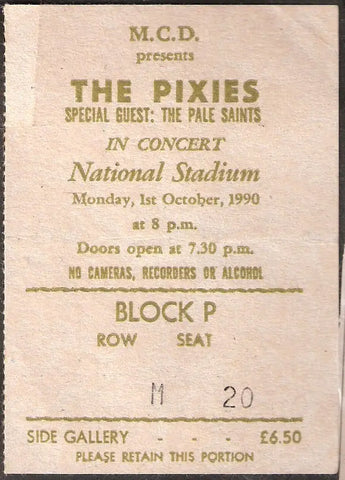
The Pixies
The Pixies, a pioneering alternative rock band credited with influencing Nirvana, Radiohead, Weezer and more, disbanded in 1993 following internal conflicts and a lack of commercial success. Despite their breakup, the band's influence grew over the years, and they remained a significant touchstone for the alternative rock genre.
The Pixies, with Black Francis up front and some new players, reunited in 2004 for a successful world tour, marking their first concert dates in over a decade. This comeback not only allowed them to reconnect with their fanbase but also introduced their music to a new generation. Their subsequent albums and tours have continued to reinforce their status as one of the most influential alternative rock bands.
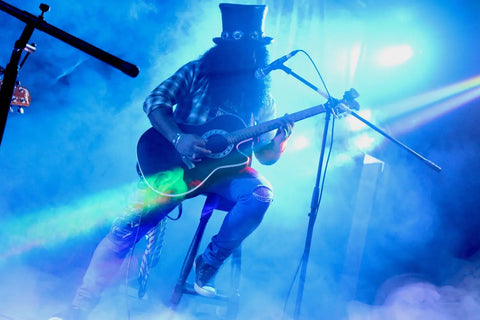
Guns N' Roses
GNR formed in 1985 and went through significant turmoil that led to their breakup and eventual reunion. Tensions within the band, particularly between lead singer Axl Rose and guitarist Slash, escalated throughout the 1990s. Disagreements over musical direction and personal differences resulted in the departure of key members, including Slash in 1996. Rose continued with a new lineup, but many say the original chemistry was lost.
After years of speculation and hope from fans, the classic lineup partially reunited in 2016, with Axl Rose, Slash, and bassist Duff McKagan coming together for the Not in This Lifetime... Tour. The reunion was a massive success, proving the enduring appeal of the band's original lineup. The tour grossed over $584 million, marking one of the highest-grossing tours in history and signaling a triumphant return for the band, much to the delight of their global fanbase.
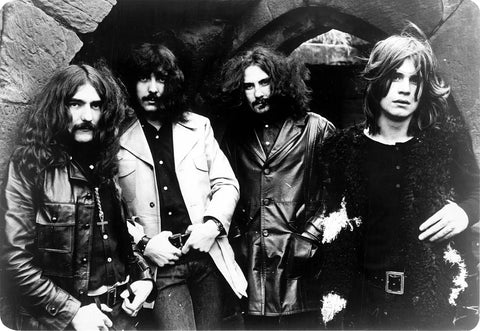
Black Sabbath
Black Sabbath, often credited with pioneering heavy metal, experienced multiple breakups and reunions throughout their career. After a series of lineup changes and internal conflicts, the original lineup, including Ozzy Osbourne, reunited in 2011 for the album 13 and a subsequent world tour. This marked the first time in 35 years that the original members had worked together on new material.
The reunion was both a commercial and critical success, demonstrating the lasting impact of their music and the continued chemistry between the band members. While a 2017 outing didn't include Bill Ward, rumor has it that there may be a final reunion concert planned soon with him joining Ozzy Osbourne, Geezer Butler, and Tony Iommi.
Oasis
Closing out our list where we began, British rock band Oasis was a defining force in the 1990s Britpop scene. Known for hits like “Wonderwall”, “Don’t Look Back in Anger,” and “Champagne Supernova”, the band’s internal conflicts, particularly between the Gallagher brothers, led to their breakup in 2009.
Despite numerous rumors and fan hopes for a reunion, both Liam and Noel denied that this was in the offing for 15 years. However, the band’s music was kept alive in part since both Gallagher brothers often performed Oasis tunes on solo tours. Fan fantasies definitely (maybe) came true on August 27th as the siblings announced, with great drama: “The guns have fallen silent. The stars have aligned. The great wait is over. Come see. It will not be televised.” Oasis dates start in the UK in 2025 but more shows beyond their homeland are promised.
Impossible to reunite, or is it?
The phenomenon of music groups splitting up and reuniting is a testament to the complex interplay of personal relationships, creative differences, and the enduring nature of their music. Each reunion tells a story of reconciliation, nostalgia, and the ever-present allure of reliving past glories.
Sometimes reformations are impossible due to the death or incapacity of a key member. However, groups such as Boston and Journey, both of which found new singers who sound eerily like those they replaced, prove the opposite. That anything is possible, even if it isn’t exactly like the original.
Ultimately, these comebacks offer fans a chance to reconnect with the music that defined their lives. They also provide the groups with an opportunity to reignite their creative spark and, truth be told, to continue to earn a living since income from sales of their music is a fraction of what it used to be, mostly due to poor revenue shares from streaming services and U.S. terrestrial (AM/FM) radio.
Whether driven by financial incentives, artistic impulses, or simple nostalgia, these reunions illustrate the timeless power of music to bring people together, even after years apart.
Interested in collecting music memorabilia? Check out our selection here. How about genuine RIAA Gold and Platinum and other record awards? Check out our selection here. We typically have several hundred in stock.
Want more content like this? If you're not a subscriber already, sign up for our free MusicGoldmine newsletter which comes out every two weeks. Go here to sign up plus get a code for 15% off your first purchase.
Be the envy of all your friends! Get MusicGoldmine.com Music History in your Facebook feed each day. Just follow us on Facebook here.
Photos © MusicGoldmine or public domain, except Oasis: Will Fresch, CC BY-SA 2.0, via Wikimedia Commons

